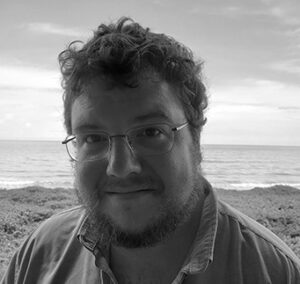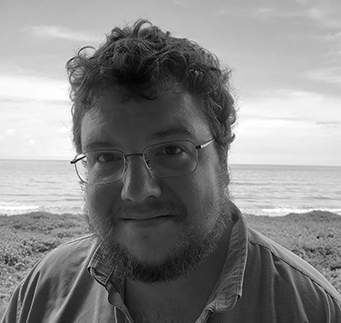TSM: Most of your novels have been inspired, to some degree or other, by real historical happenings. What do you find most intriguing or otherwise inspiring about the historical events and periods that you’ve drawn on in your works?
JH: Well for the newest book, The Siberia Job, the real story on which it’s based was so fantastic that I think any writer who stumbled on it would have wanted to turn it into a novel—I’m lucky I got there first! The 90s in Russia, between Communism and Putinism, is just an incredibly fascinating time — in many ways very much like a gold rush in the wild west. You had a lot of adventurers and a lot of rogues, people trying to make their fortunes in a time & place where the winner of any dispute tended to be the guy with the most guns. Might made right, but there was gold in them there hills. (Forgive the hacky cliches.) As for my other historical novels (the Thomas Grey Series, which I write under my other name, JH Gelernter)—they’re set at the beginning of the 19th century; thrillers that aim to be sort of “James Bond in the Napoleonic Wars.” What can I say about the age of Napoleon, Wellington & Nelson, Jane Austen, Keats, Shelley & Wordsworth, Haydn & Beethoven? Not to mention Lucky Jack Aubrey and Richard Sharpe. It’s one of those belle epochs (if I can use the expression). The last gasp of a romantic past. Swords were being replaced by guns, sails by steam, and chivalry by pragmatism. Since I can’t spend every hour of every day re-watching Master & Commander & Pride & Prejudice, I’ve had to indulge my Napoleonic enthusiasm with some novel writing.
TSM: Could you tell us a bit about your most recent novel, The Siberia Job?
JH: It’s a based-on-real-events story of a couple guys who went to Russia after the collapse of the Soviet Union to try to get rich by out-gaming the corrupt ex-communist officials who were gaming the system of post-communist privatization. As public industries were sold off, these two guys gained control of a huge segment of the Russian energy industry—prompting murders, mafia run-ins, kidnappings, hedonism, tank roadblocks, negotiations over dinosaur skeletons and utter craziness.
 TSM: What other sources of inspiration did you find yourself drawing on for The Siberia Job? Are there any books, authors, movies, shows, songs, etc. that you’ve found yourself frequently referencing or turning to over the course of your career?
TSM: What other sources of inspiration did you find yourself drawing on for The Siberia Job? Are there any books, authors, movies, shows, songs, etc. that you’ve found yourself frequently referencing or turning to over the course of your career?
JH: In fact, most of the book is set just after the release of Weezer’s Blue Album, and part of the finale just after the release of Weezer’s Pinkerton – so they got a lot of play while I was working on the book (though not writing it—I can’t write with music on). Several songs off both albums were actually quoted in a couple scenes in the book. Tragically, the lyrics had to be cut for copyright reasons, but it did end up as a fun minor motif.
TSM: What did your research process for your most recent novel look like?
JH: Mostly interviews—lots and lots of interviews, on and off the record, with people involved in the events of the story, plus a few with people who were in Russia during this time period and could help set the scene. Then there was some reading of contemporary news reports and some brushing up on my post-Soviet history—and some boning up on international finance.
TSM: What interests you most about the thriller genre? What initially drew you to it, either in reading or in writing?
JH: I guess love thrillers because they’re thrilling. I enjoy serious, artsy, even slightly pretentious literary fiction as much as the next guy—but give me a real page-turner and I become oblivious to the outside world. That’s what I most enjoy when I’m reading, and consequently, what I most enjoy writing.
TSM: What challenges did you find yourself encountering as you wrote The Siberia Job? Were any of these challenges unexpected? On the flip side, what were some of the things you enjoyed the most about writing this story?
JH: Well, the main challenge was that a number of people involved in the real Siberia Job story, directly or indirectly–and including one writer, though he was a reporter rather than a novelist–have been murdered or have died under “suspicious circumstances.” Couldn’t help having that in the back of my mind while I was writing! Conversely, for complex reasons having mainly to do with visas, I conducted a number of interviews for the book in the Bahamas. So, that was nice.
TSM: What in particular about the historical event that The Siberia Job is based on inspired you?
JH: I’ve always admired people who set their sights on a goal and won’t give up till they’ve reached it, no matter what obstacles are thrown up in front of them. That’s the essence of The Siberia Job’s story—and let me tell you, our real-life protagonists had to overcome some pretty crazy obstacles. Like, a company trying to persuade them to sell their stock by sending a negotiator dressed in a butcher’s jacket covered in blood…
TSM: Do you have any projects in the works that we can look forward to?
JH: I’ve got another Napoleonic spy thriller out on August 1st – the third entry in the critically acclaimed and universally beloved Thomas Grey series, called The Montevideo Brief. Though note that the Grey books are published under the name “JH Gelernter” instead of “Josh Haven.” Now I don’t want to oversell it… and I don’t want to say it’s the greatest novel ever written… but maybe number two, after The Siberia Job? I’ll leave that as an open question for historians.

